Program
Discovery
Preclinical
Clinical
Indication: Brain Cancer, VEGFRi add-on therapy
VRN01 is a First-in-Class oral LRRK2 (Leucine Rich Repeat Kinase 2) inhibitor targeting GBM(Glioblastoma multiforme) and other solid cancers(Pancreatic cancer, etc.).
Through the research collaboration with National Cancer Center (NCC) in Korea, the life expectancy of GBM patients was confirmed to be negatively correlated with LRRK2 expression level in GBM tumor. Specifically, NCC has proven that the GBM cells increase LRRK2 expression to overcome metabolic stress caused by hypoxia and nutrition imbalance during tumor growth*. Treatment of LRRK2 inhibitor in LRRK2-positive tumors can effectively block the tumor growth, and this anti-tumor activity has been further pronounced in hypoxic conditions.
In Phase 1 trial in Korea, VRN01 showed good tolerability and drug properties. Voronoi is developing VRN01 and planning to co-treat with other agents such as angiogenesis inhibitors to maximize antitumor effect and eventually improve patient lives.
*ref. Bae, YH., Joo, H., Bae, J. et al. Brain injury induces HIF-1α-dependent transcriptional activation of LRRK2 that exacerbates brain damage. Cell Death Dis 9, 1125 (2018). https://doi.org/10.1038/s41419-018-1180-y
Indication: Lung Cancer
VRN11 is a First-in-Class oral EGFR inhibitor, targeting C797S mutation in NSCLC (Non-Small Cell Lung Cancer), which is a common acquired resistance of the 3rd generation EGFR inhibitor Tagrisso (Osimertinib)*.
As Tagrisso becomes the 1st-line therapy for NSCLC harboring EGFR (Epidermal Growth Factor Receptor) mutation in the U.S., China, and Europe, the need for therapy targeting C797S mutation, a post-Tagrisso acquired resistance is increasing**. However, there is no approved therapeutics to address C797S mutation to date. The 1st generation EGFR inhibitors are studied in clinic, yet the unmet medical needs remain high since they fail to address brain metastases due to its limited efficacy and low brain penetration.
VRN11 has showed efficacy in NSCLC models with C797S mutation and expected to be efficacious in brain metastases thanks to its high brain penetration profile.
Voronoi is developing VRN11 to give hope to patients suffering from brain metastases which occur in up to 50% of NSCLC patients with EGFR mutations.
*Ref. Leonetti, A., Sharma, S., Minari, R. et al. Resistance mechanisms to osimertinib in EGFR-mutated non-small cell lung cancer. Br J Cancer 121, 725–737 (2019). https://doi.org/10.1038/s41416-019-0573-8
*Ref. Rangachari D, To C, Shpilsky JE, VanderLaan PA, Kobayashi SS, Mushajiang M, Lau CJ, Paweletz CP, Oxnard GR, Jänne PA, Costa DB. EGFR-Mutated Lung Cancers Resistant to Osimertinib through EGFR C797S Respond to First-Generation Reversible EGFR Inhibitors but Eventually Acquire EGFR T790M/C797S in Preclinical Models and Clinical Samples. J Thorac Oncol. 2019 Nov;14(11):1995-2002. doi: 10.1016/j.jtho.2019.07.016. Epub 2019 Aug 1. PMID: 31377341; PMCID: PMC6823139.
**Ref. NCCN Guidelines®
Indication: Breast Cancer
VRN10 is a Best-in-Class orally available HER2-targeted inhibitor for the treatment of HER2-positive breast cancer.
Antibody-drug conjugates (ADCs) are replacing HER2-targeted antibodies with good anti-tumor activity in clinic, but it also has high toxicity concerns, so there remains a need for drugs with better tolerability. ADCs have been recently approved in the 2L setting and is under evaluation in the 1L setting as well.
Observing changing landscape of HER2-positive breast cancer therapy, Voronoi is focused on post-HER-targeted ADC space, especially patients who may develop acquired resistance to HER2-targeted ADCs. One of the resistance mechanisms of HER2-targeted ADCs or HER2-targeted antibodies (Abs) is the loss of HER2 extracellular receptor. If HER2-targeted ADCs or -Abs cannot bind to HER2 receptor, then demand for TKIs that bind to the kinase domain in the intracellular part will increase.
In pre-clinical studies, VRN10 showed superior efficacy and brain permeability to FDA-approved drugs includingTucatinib (TUKYSA®), Neratinib (NERLYNX®), and Lapatinib (Tykerb®), and long-term resistance mechanism study exhibited that VRN10 may address resistance mutations of Tucatinib. In addition, VRN10’s tolerable profile may make VRN10 an effective treatment option for patients with brain metastases*.
*Ref, 2021 AACR, 2021 AACR-EORTC-NCI by VORONOI
Indication: Autoimmune Disease
VRN04(RIPK1) is a First-in-Class oral RIPK1 inhibitor targeting autoimmune diseases.
RIPK1(Receptor-interacting serine/threonine-protein kinase 1) is a downstream kinase involved in TNF-α signaling, which is important for autoimmune diseases. As opposed to TNF antibody biologics(injections) which inhibit TNF-α from binding to its receptor in extracellular space, VRN04-1, inhibiting inflammatory TNF-α-TNFR mediated intracellular inflammatory signals, gives patients benefit and convenience as it is administered orally.
Unlike TNF antibodies, VRN04-1 has no risk of ischemic stroke due to inhibition of TNF receptor type. With its benefits, VRN04-1 is expected to replace the TNF antibodies in the market.
Voronoi is developing VRN04 for the treatment of various autoimmune diseases including IBD (Inflammatory Bowel Disease).
Indication: pulmonary arterial hypertension(PAH)
VRN13 is a Best-in-class inhaler program under development for the treatment of pulmonary arterial hypertension(PAH).
Pulmonary arterial hypertension is a disease in which an abnormality in the pulmonary artery makes it difficult to supply blood from right side of the heart to the lung, resulting in an increase in pulmonary arterial blood pressure. The 3-year survival rate of patients with PAH is reported to be only 50% in Korea, and there remains a need for disease-modifying therapy as it is a progressive disease that continues even with medication.*
Overexpression of PDGFR is known to cause abnormal thickening of the pulmonary artery blood vessel wall. In IMPRES-3 phase 3 clinical trial for patients with pulmonary arterial hypertension, Gleevec, an oral anticancer drug with PDGFR inhibitory activity, exhibited excellent efficacy but neurotoxicity was identified as a major drawback.
VRN13 is delivered directly into the pulmonary artery with low systemic exposure and is a selective inhibitor of PDGF receptor sparing VEGFR-2, a commonly reported off-target kinase causing deteriorating side effects, so we expect VRN13 to be an effectivetherapeutic option .
Voronoi is dedicated to developing drugs that significantly improve the lives of patients with rare and debilitating pulmonary arterial hypertension.
*Ref. 김혜인, “폐동맥고혈압, 조기 약물병용으로 생존율 높이는 게 세계적 흐름”, <청년의사>, 2020.12.08, https://www.docdocdoc.co.kr/news/articleView.html?idxno=2005472



